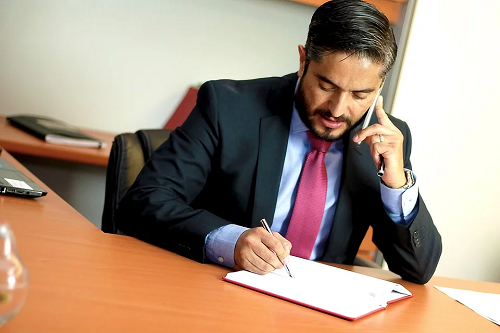There’s no question that an associate’s degree in paralegal studies is one of the fastest online associate degree programs out there. In fact, there are online associate’s degree programs for aspiring paralegals that can be completed in as little as 12 months. The question is, what will you get out of this short educational program? Will you have sufficient career preparation to acquire the job you want, or are you doomed to get beaten out in your job search by candidates with a four-year degree? The good news is that the associate’s degree is the most common level of education for paralegals, but you should know that there are many other factors that also affect your footing as a candidate for the most desirable paralegal positions.
IMAGE SOURCE: Pixabay, public domain
An Associate’s Degree as the Standard Level of Paralegal Education
Given that there are a number of bachelor’s programs in paralegal studies – and even master’s degree programs – you might worry that you can’t compete with job applicants who have more education. However, an associate’s degree is the typical level of education needed to work as a paralegal, according to the United States Bureau of Labor Statistics (BLS). In fact, the associate’s degree is the single most common level of education in the field, with 50 percent of all paralegals reporting this background, O*NET reported.
Why is an associate’s degree in paralegal studies so popular? Paralegal isn’t a highly academic career path, but instead one which requires strong skills in research, organization, communication and computer proficiency, the BLS reported. Between the required paralegal coursework and the elective paralegal coursework, your associate’s degree curriculum should provide you with a thorough education in the kinds of skills most crucial to your future work as well as a strong foundation in many different areas of law. Because law is constantly evolving – through new legislation as well as case law established by court decisions – having the skills to research the changes in law and to perform the numerous tasks of a paralegal is more important than understanding academic topics like the theory and research involved in law. Additionally, the ability to finish your college education quickly and get out into the workforce sooner means you spend less on a degree and start earning money faster.
The bachelor’s degree is the next most common level of education, but just 34 percent of paralegals have this level of education. Another seven percent of paralegals report having a post-secondary certificate.
Factors That Affect Your Job Marketability as a Paralegal
The level of study you complete is just one factor to consider in your job prospects as a paralegal. There are many factors to consider, from the work experience you have to whether your associate’s degree program has the approval of the American Bar Association (ABA). Even the expectations and preferences of individual employers make a big difference in whether you get hired.
If you have years of work experience in a law firm but no formal educational credential, the impact of you earning an associate’s degree is likely to be much different than that of a student fresh out of high school. Most paralegal employers – 73 percent of whom are law firms and other entities that belong to the legal services industry, the BLS reported – look at the whole package of a candidate, not only at education. In fact, attorneys often weigh experience and skills as more valuable than academic accomplishments. Paralegals with an associate’s degree but years of experience will likely have job prospects on par with, if not better than, less experienced candidates with a bachelor’s degree.
Remember, too, that an associate’s degree is not the lowest level of education you can get in paralegal studies. An associate’s degree still provides a more extensive education than a certificate program that requires only a high school diploma for admission.
The strength of your college’s paralegal studies program also matters in more ways than one. Associate’s degree programs that meet the high standards set by outside organizations command more respect from prospective employers than those that aren’t approved. As of March 2020, the ABA has approved seven associate’s degree programs in paralegal studies, spread across community colleges, technical colleges and universities in six states. However, a program doesn’t need to have ABA approval to be of high quality. Many strong paralegal programs are offered by schools known regionally or nationally for their prestigious reputations but haven’t gone through the costly and time-consuming process of seeking ABA approval.
Some law firms only consider applicants with a bachelor’s degree and professional certification, but others will hire and train a candidate with no legal background at all, the BLS reported. It all depends on the law firm’s needs and what else you bring to the table.
Additional Resources
How Fast Can I Become a Paralegal?
Do I Need a Specific Degree or Complete a Course to Become a Paralegal?


